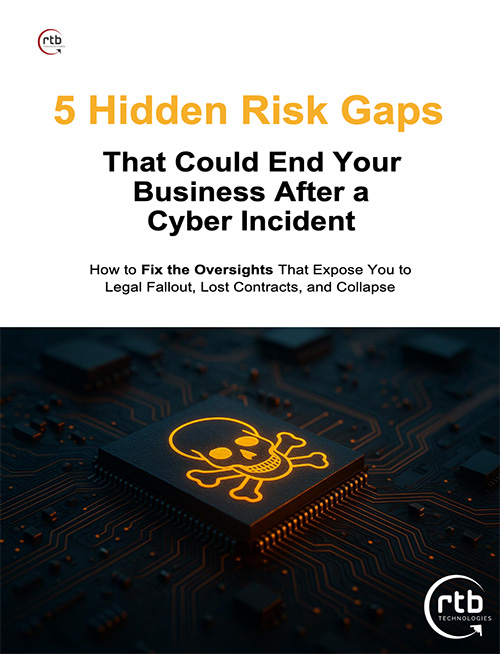
Last December, an accounts payable clerk at a mid-sized company got an urgent text from her “CEO”: Buy $3,000 worth of Apple gift cards for clients, scratch the backs, and e-mail the codes. It sounded odd, but the request came from the boss’s name, and it was peak holiday chaos. By the time she double-checked, the cards were gone, the scammer had cashed out, and the business had eaten the loss.
That scam may sting, but others can cripple a business entirely. That same month, Orion S.A., a Luxembourg-based chemical manufacturer, fell victim to a far more devastating con. An employee received what appeared to be routine e-mail requests for wire transfers—likely from a trusted colleague or partner. The requests seemed legitimate, urgent, and aligned with normal operations. Without hesitation, the employee processed multiple transfers as instructed.
The result? Sixty million dollars sent directly to cybercriminals—more than half the company’s annual profits gone in a series of fraudulent wire transfers.
If you think your business is too small to be a target, think again. Gift-card scams alone cost organizations over $217 million in 2023, and business e-mail compromise attacks accounted for 73% of all cyber incidents in 2024. The holidays are prime time for these attacks because criminals know your team is distracted, stressed, and processing more transactions than usual.
5 Holiday Scams Your Employees Need To Know (Before They Cost You Thousands)
- “Your Boss Needs Gift Cards” (The $3,000 Text Trap)
Impostors pose as executives and pressure staff into buying gift cards for “clients” or “employee appreciation.”
Prevention: No gift cards without two approvals. Train employees that leadership will never request them via text. - Invoice & Payment Switch-Ups (The Big Money Play)
Fraudsters send “updated banking details” or hijack vendor e-mail threads right when year-end bills are due.
Prevention: Confirm any banking changes with a known phone number, never the one in the e-mail. Adopt a “phone call rule” for all financial changes over $5,000. - Fake Shipping & Delivery Notices
Phishing e-mails or texts pose as UPS/FedEx/USPS with links to “reschedule delivery.”
Prevention: Train staff to type the carrier’s site directly into the browser. Bookmark official tracking pages. - Malicious “Holiday Party” Attachments
E-mails with attachments like “Holiday_Schedule.pdf” or “Party_List.xls” install malware when opened.
Prevention: Block macros, scan attachments, and make verifying unexpected files part of your culture. - Bogus Holiday Fundraisers
Phishing sites mimic charities or fake “company match” campaigns to steal money or data.
Prevention: Share an approved charity list and require all donations to flow through official portals.
Why These Attacks Work (And How To Stop Them)
These aren’t “Nigerian prince” e-mails—they’re professional, researched, and convincing.
Organizations that run regular phishing simulations reduce risk by 60%, yet most small and mid-sized businesses never train employees.
Multifactor authentication blocks 99% of unauthorized logins, but many still rely on passwords alone.
Your Holiday Defense Checklist
✅ Two-Person Rule: Require verbal confirmation for any large transaction.
✅ Gift Card Policy: Put it in writing—no e-mail or text-based requests.
✅ Vendor Verification: Always confirm changes using numbers already on file.
✅ MFA: Enable it everywhere.
✅ Holiday Awareness: Brief your team with real examples.
The Real Cost: More Than Just Money
While Orion’s $60 million loss made headlines, the hidden costs often hit smaller businesses harder:
- Operations grind to a halt during peak season
- Productivity drops as staff scramble to recover
- Customer trust erodes if client data is exposed
- Cyber insurance premiums spike after an incident
The average loss per business e-mail compromise incident is $129,000—enough to ruin a fiscal year.
Keep Your Holidays Merry, Not Messy
The holidays should be about growth and celebration, not wire fraud and cleanup. A short team huddle and a few smart policies can save your business from a five-figure loss.
Remember: the Orion incident could have been stopped with one simple verification call. With the right awareness and layered protections, your business can stay safe—and confident.
👉 Click here to Book your 10-Minute Cyber Risk Discovery Session
Because the best gift you can give your business this holiday season is peace of mind.



